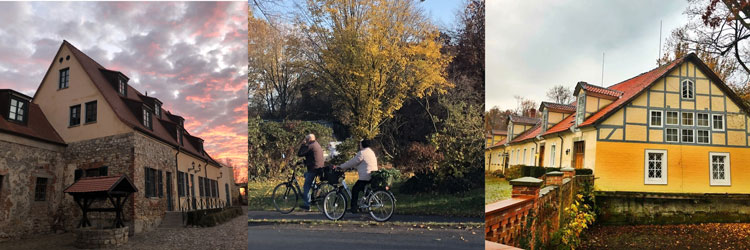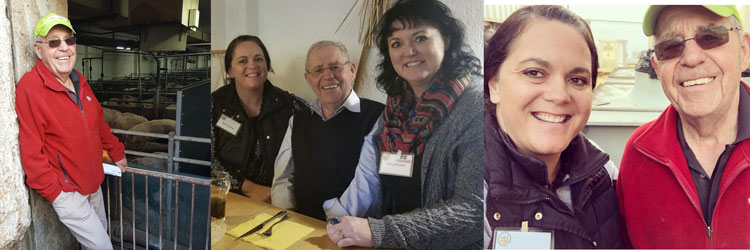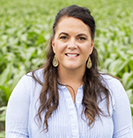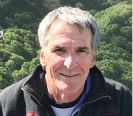
Via trains, planes, and automobiles, I recently made my way from East Moline, Ill., to Germany. I traveled with the German American Chamber of Commerce for a transatlantic consumer engagement study trip.
I was excited to see the beauty of another country, and Germany did not disappoint. The unseasonable weather warmed both my shoulders and my soul. I was 4,500 miles away from Illinois, Germany held onto fall colors, and as I traveled, my mind was widened by its rich history. Our group toured farms and EuroTier, the world's leading trade fair for animal production, along with visiting both the U.S. Embassy and German Federal Ministry for Food and Agriculture.
While I fully enjoyed the entire trip, I really loved the farm visits. One in particular that made my smile stretch and left a lasting impression was our visit to Kocher and Meuser KG Farm, a 9,000-pig operation with 3,750 acres of corn, wheat, barley, and rye located in eastern Germany.
Impressive because of its size and scale, the farm actually had to scale back their operation to less than 6,000 feeder hogs due to government regulations, which stated they had to give their pigs more space. German processors give premiums for hogs given more space because of public perception.
The family talked openly about the labor shortage, rising input costs, low prices, and public perception. Our U.S. group understood in spades. After all, we are facing the same situation across the pond.

We all listened when the farm’s patriarch, 79-year-old Heinrich Kocher, started talking.
Heinrich's storytelling ability pulled at our heartstrings. He reminded me of my late father. I instantly was drawn into his life story and called him “Dad.” "Dad" told us long stories about starting the family farm after the fall of Communism in 1989 and that the most important thing is family and faith. "Never underestimate the power of prayer," he told me.
I think that is what resonated with me the most. At a time when our own country is facing such trying times with low milk price, rising input cost, and a rapid decline of dairy farmers exiting the business, I realized that ultimately we have to pray for better days.
Heinrich's own story of commitment, faith, patience, and perseverance fueled him to soar ahead in life. "Dad" never let grass grow under his feet, and his success is a reflection of his drive for life. He had so many take home messages, and he made it all sound simple and inspiring. "Once a farmer, always a farmer. Love your job and love your life. When I turn 90, maybe I will slow down and grow a garden," he said.
On my journey back home, I thought of "Dad" and realized that leaving the farm and traveling to Germany is both a privilege and an opportunity. An opportunity that I'm forever thankful for, not because of the places it took me to but for the people it introduced me to.

Karen Bohnert is a second-generation dairy farmer, born and raised on her family dairy in Oregon and moved east after graduating from Oregon State University. Karen and her husband work in partnership with family, and they along with their three children live and work on the family's 500 Jersey cow dairy in East Moline, Ill. Karen's pride and love for dairy could fill a barn, and she actively promotes dairy anyway she can.

Join us on December 10, 2018 for our next webinar:
"Cutting feed costs without cutting milk"
presented by Bill Weiss, The Ohio State University
It is easy to cut feed costs, but it’s harder to cut costs without sacrificing milk production. This webinar will discuss controlling expenses by selecting cost-effective ingredients, grouping cows correctly, and formulating diets to provide adequate nutrients without over-formulating the ration. Register here for all webinars.